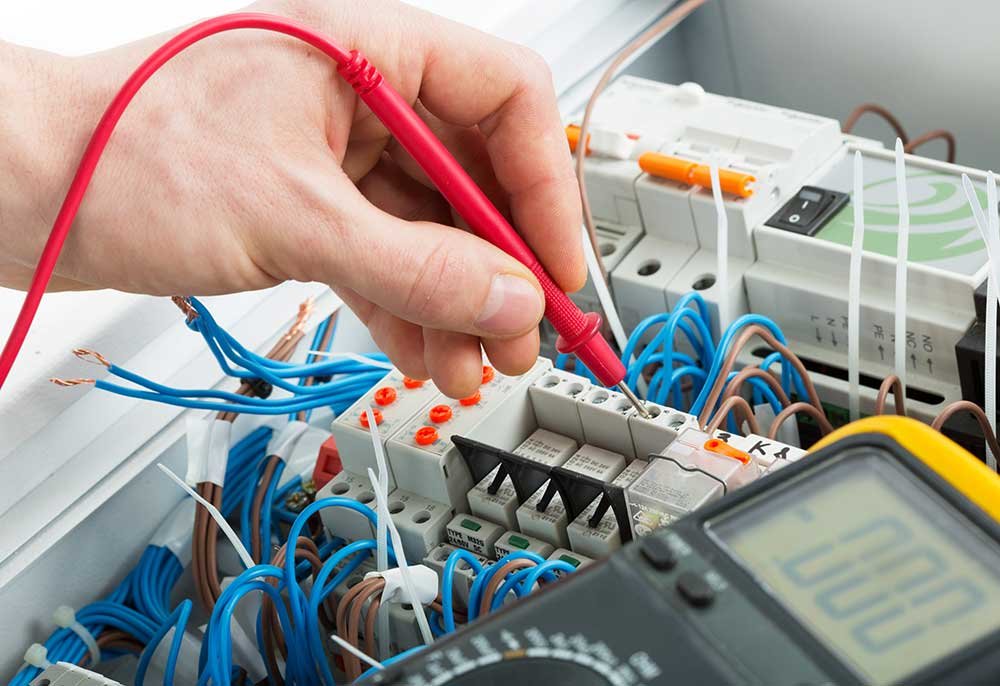When it comes to electrical work, the roles of commercial electricians in Melbourne and residential electricians are often distinct.
Commercial electricians are highly skilled professionals who specialize in managing electrical systems for big businesses, offices, factories, and various other commercial establishments. At the same time, residential services focus on addressing the specific electrical requirements of houses and individual homeowners.
So, the lines between commercial and residential electrical work can sometimes blur, leaving both electricians and homeowners wondering if a commercial electrician is capable of handling residential projects.
The main goal of this blog is to thoroughly examine to give an understanding of whether a commercial electrician in Melbourne can effectively handle residential electric services.
Brief Overview of Commercial Electrician Melbourne
As we already know, commercial electricians are the backbone of the modern business world.
They use their knowledge of electrical systems and prioritize safety and efficiency to make sure that commercial buildings, like busy offices and large factories, have reliable power and can keep running smoothly.
Commercial electricians have a huge range of skills and knowledge to handle intricate electrical systems found in commercial settings, and unlike residential electricians who only focus on homes, commercial electricians tackle large-scale projects.
Distinction between Commercial and Residential Electrical Work
Commercial vs. residential electricians, there are a few differences between these two.
Each requires a unique set of skills and expertise due to the specific demands of their respective settings.
Scale of Projects
Commercial electrician in Melbourne tackles quite big projects like wiring entire buildings, while residential electricians focus on home electric services only.
Diversity of Systems
Commercial electricians handle complex three-phase power systems, while residential electricians work with single-phase power and household wiring.
Safety Regulations
Commercial electricians adhere to stricter safety standards due to higher occupancy levels in commercial settings.
Wiring Complexity
Commercial projects involve intricate wiring layouts, while residential projects maintain a simpler design with attention to detail.
Time Sensitivity
Commercial projects demand quick turnaround times, minimizing disruptions, while residential projects have more scheduling flexibility.
Clientele and Communication
Commercial electricians interact with business owners, while residential electricians communicate directly with homeowners.
Understanding Commercial Electricians
Skills and Expertise Typically Possessed by Commercial Electricians
Commercial electrician Melbourne is equipped with a plethora of skills that can detangle the challenges of commercial electrical work.
They possess a deep understanding of electrical codes, safety regulations, and industry standards. Their skill set includes the ability to read blueprints and schematics, conduct electrical testing and diagnostics, and work with specialized equipment.
Moreover, commercial electricians have strong problem-solving capabilities to troubleshoot complex electrical issues efficiently. They are well-versed in handling three-phase power systems, high-voltage wiring, and advanced lighting control systems, among other technologies.
Types of Electric Services Projects They Handle in Commercial Settings
Commercial electricians take on many and many projects in commercial settings. Some common examples include:
- Electrical Installations
- Lighting Systems
- Power Distribution
- Machinery Wiring:
- Fire and Security Systems
Comparing Commercial and Residential Electrical Work
Key Differences between Commercial and Residential Electrical Systems
Commercial and residential electrical systems differ significantly due to the nature of the buildings they serve. Some key differences include:
Scale: Commercial electric services systems are typically larger and more complex than residential systems. They need to accommodate higher power demands to cater to multiple businesses and occupants.
Load Diversity: Commercial buildings have diverse electrical loads, such as
- lighting,
- heating,
- cooling,
- Machinery, and
- computers,
While residential buildings mainly focus on
- lighting,
- Appliances, and
- HVAC systems.
Three-Phase vs. Single-Phase: Commercial electrical systems often use three-phase power, providing higher voltage and greater capacity, while residential systems use single-phase power for standard household needs.
Wiring Configurations: Commercial buildings may have more intricate wiring configurations, such as
- conduit systems and cable trays,
- To support the higher number of circuits and power distribution.
Overlapping Skills and Knowledge between Commercial and Residential Electricians
Despite their differences, there are areas of overlapping skills and knowledge between commercial and residential electricians:
Electrical Fundamentals: Both electricians have a solid foundation in electrical theory, safety practices and an understanding of electrical codes and regulations.
Wiring and Circuitry: While commercial electricians may handle more complex wiring systems, commercial and residential electricians are skilled in wiring circuits and connecting electrical components.
Troubleshooting: Troubleshooting electrical issues is a common skill shared by both types of electricians, regardless of the setting they work in.
Safety Measures: Both commercial and residential electricians prioritize safety, ensuring electrical systems are safe for occupants and users.
Potential Challenges Commercial Electricians May Face in Residential Projects
When commercial electricians venture into residential projects, they may encounter certain challenges:
- Commercial electricians accustomed to working on large-scale projects may need to adjust to the smaller scale of residential projects.
- Residential electric services projects are governed by different electrical codes and regulations than commercial projects. Commercial electricians in Melbourne must familiarize themselves with residential codes to ensure compliance.
- Interacting with homeowners and understanding their specific needs may differ from dealing with business clients, requiring excellent communication and customer service skills.
- Commercial electricians may encounter residential-specific systems, such as home automation and security systems, which they may not encounter in commercial settings.
Can a Commercial Electrician Handle Residential Work?
Analyzing the Transferable Skills of Commercial Electricians
Commercial electricians possess a wide range of skills that can be transferred to residential electrical work. Some of these skills include:
Technical Expertise: Commercial electricians have a solid foundation in electrical theory, wiring, circuitry, and electrical components, which are applicable to both commercial and residential settings.
Problem-Solving Abilities: Dealing with complex electrical systems in commercial settings equips commercial electricians with strong problem-solving skills that are valuable in troubleshooting residential issues.
Safety Consciousness: Safety is paramount in both commercial and residential electrical work. Commercial electricians’ adherence to safety protocols can be directly applied to residential projects.
Attention to Detail: Commercial electricians are accustomed to handling intricate electrical systems, and this attention to detail is crucial in residential projects to ensure safety and functionality.
Assessing the Risks and Benefits for Both the Electrician and the Client
Risks for the Electrician:
- a) Lack of Familiarity
- b) Customer Expectations
Benefits for the Electrician:
- Diversification
- Increased Market Potential
Risks for the Client:
- Experience and Expertise
Benefits for the Client:
- Professionalism
- Complex Projects
Final Words
In conclusion, whether a commercial electrician can handle residential work boils down to a matter of adaptability, training, and the project’s specific demands. Commercial electricians possess a diverse skill set, including technical expertise, problem-solving abilities, and a strong focus on safety, which are valuable and transferable to residential electrical work.
However, successful entry into the residential market requires commercial electricians to undergo additional training and certifications to familiarize themselves with residential-specific codes and systems.
Moreover, they must be prepared to adjust their approach to accommodate the scale and unique challenges of residential projects and effectively communicate with homeowners.
For commercial electricians in Melbourne willing to embrace these changes, venturing into residential work can be a rewarding endeavor. It allows them to diversify their services, tap into a broader customer base, and potentially experience business growth.
Homeowners can also benefit from the professionalism and expertise that commercial electricians bring to their residential projects, particularly for larger or specialized undertakings.
In this dynamic electrical landscape, the key lies in striking a balance between the skills of commercial electricians and the unique requirements of residential projects.
With the right mindset and commitment to learning, commercial electrician Melbourne can effectively handle residential work, expanding their horizons and contributing to the vibrant tapestry of the electrical industry. As they do so, clients can be free of worry as their electrician has got them all covered by the hands of professionals to ensure excellence and safety.
In the end, it is the harmonious coexistence and synergy between commercial and residential electricians that power the world around us, illuminating both our workplaces and our homes, ensuring a bright and electrifying future for us all.


